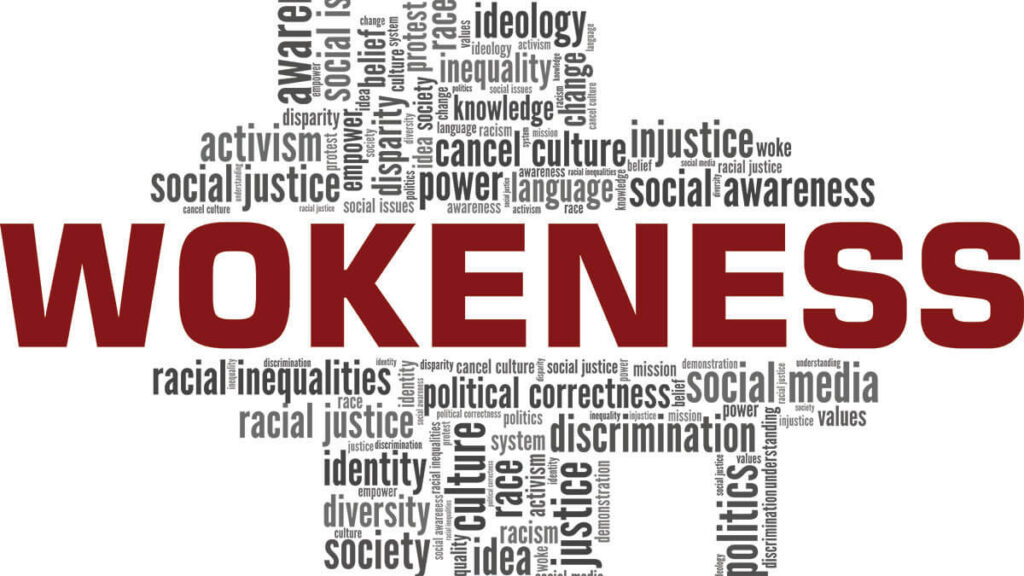Conservatism has helped establish and maintain our society throughout the ages. It is something which should be upheld and celebrated. But what is conservatism, and how does it benefit society?
Conservatism, n. – The holding of conservative principles, the tendency to resist great or sudden change, esp. in politics; adherence to traditional values and ideas. (Oxford English Dictionary)
Conservatism adheres to traditional values, customs and institutions. It preserves what’s great about society, prioritising stability and gradual change over radical transformation – progress should be slow and deliberate to avoid negative consequences. Preserving the family, religion and stable government is essential.
Conservatism represents one of the major political philosophies operating in modern societies, the other main philosophies being Liberalism, Progressivism, Socialism, Communism, Fascism, and Libertarianism. Political parties are usually given some of these labels based on their policies and core beliefs. In New Zealand politics we could attempt labelling each political party accordingly: The National Party (traditionally this has been a Conservative political party, but more recently the Nats have become more socially liberal); Act (Libertarian); NZ First (Conservative); Labour (Socialism and Progressivism); The Green Party (a number of leftist labels can be given to The Greens including socialism, progressivism, and leftist activism). Te Pati Maori are more difficult to label because of their race-based agendas, but they certainly have elements of activism, socialism and progressivism.
It is possible for a political party to be fiscally conservative yet socially liberal (both Act and National are of this ilk).
Our Value Your Vote website lists our MPs and displays their voting record on values-based issues. So you can easily identify the conservative MPs in our parliament.
The Core Principles of Conservatism
At its core, conservatism emphasises the preservation of traditional social institutions, values, and practices while approaching change with careful consideration. It’s not that conservatism avoids change altogether, it’s just that change is approached in a measured and cautionary way. It’s a “steady as you go” philosophy.
Here is a summary of the core principles of conservatism:
Tradition and Customs – Conservatism values traditions and customs, believing they contain accumulated wisdom which benefits society. Traditions can bring people together, fostering a sense of shared identity and unity within a community. Cultures are defined by the customs, and social behaviour of a group of people, so in preserving these customs that have proven effective conservatism helps preserve the culture.
Preserving Foundational Institutions – Conservatives seek to preserve a range of foundational institutions, such as the nuclear family, organised religion, the nation-state, elected government, property rights, and the rule of law.
Stability and Gradual Evolution (instead of radical change) – Conservatism tends to avoid radical changes that disrupt its foundational pillars. Conservatives believe that society functions best when its primary institutions – such as family, religion, and government – are stable and predictable. Society can best flourish when built on these stable foundations. Any change is gradual and incremental, rather than radical.
Pragmatism Over Ideology – The opposite of “ideology” could be described as “pragmatism” or “realism”. Conservatives tend to be pragmatic and rational, favouring solutions that have worked in the past rather than unproven theoretical ideas.
Respect for Authority and Hierarchy – Conservatism generally respects established authority and hierarchies in the family, community, and government. The belief is that these structures help maintain order and are essential for the proper functioning of society.
Limited Government – Many conservatives advocate for limited government intervention in the lives of individuals, thus protecting individual liberty and free enterprise. Conservatives believe that individuals and families should have the freedom to make their own decisions without excessive state interference.
Individual Responsibility – Conservatism places a strong emphasis on personal accountability and self-reliance rather than dependence on government assistance.
Support for Free Markets – Conservatives generally favour free market principles and minimal economic intervention by the state.
Respect for the Rule of Law – Upholding the Rule of Law is seen as essential for a functioning society. The Rule of Law is the principle that everyone (including lawmakers) are accountable and equal before the law.
These core principles of Conservatism differ from the principles underpinning the competing philosophies of Liberalism, Progressivism, Socialism, Communism, Fascism. However it is worth noting that Conservatism, Liberalism and Libertarianism share some of the same foundational principles, namely Individual Rights, Limited Government, Individual Responsibility, and Support for Free Markets. Our present New Zealand government is formed from three coalition partners, therefore we see a blending of different political philosophies: Conservatism, Libertarianism, Liberalism, and Progressivism.
How does Conservatism benefit society?
As stated, Conservatism benefits society and is something which should be upheld and celebrated. Here are some of the main benefits to society:
Social Cohesion and Stability – One of the primary arguments for conservatism is that it helps maintain social cohesion and stability. By preserving established institutions and cultural practices that have proven effective over time, conservative principles may help create a sense of belonging and community, meaning that people are more likely to work together for the common good.
Improved Policy Outcomes – By building on what has worked in the past and making careful adjustments, conservative governance may create better outcomes and avoid the unintended consequences that often result from sweeping reforms.
Economic Growth and Prosperity – Conservative economic policies that emphasise free markets, limited regulation, and fiscal restraint have been credited with fuelling economic growth and innovation. Conservatives argue that economic growth and innovation raises living standards across society.
Stability in Times of Change – While change is inevitable, conservatives argue that societies function best when they evolve gradually rather than rapidly.
Protection of Individual Liberties – With its emphasis on limited government power, conservatism often halts state overreach. Conservative principles can help protect fundamental rights like freedom of speech, and religion. This also allows for diverse views and practices to coexist.
Respect for Family and Moral Values – Conservatism emphasises the importance of strong families and moral values, which are seen as the basis of a healthy society. By prioritising these values, conservatism promotes a culture of responsibility, and care for others, which can lead to stronger communities and improved quality of life.
Preservation of Valuable Cultural Heritage – Conservatives place high value on preserving cultural traditions, historical knowledge, and social norms that provide meaning and cohesion to communities. This helps maintain connections between generations and provides a sense of identity.
Promotion of Personal Responsibility – By encouraging people to take ownership of their choices and circumstances, conservative approaches may help build stronger communities.
Conclusion
In conclusion, Conservatism offers a model of society grounded in tradition, stability, and respect for established institutions. It provides a framework that emphasises gradual change, personal responsibility, and the preservation of core values. In an era marked by rapid social change and uncertainty, conservatism provides an anchor, ensuring that progress is made thoughtfully and without disrupting the fabric of society. Conservatism has been shown to benefit society to a much greater extent than the other philosophies of Liberalism, Progressivism, Socialism, Communism, Fascism, and Libertarianism.
Our Value Your Vote website lists our MPs and displays their voting record on values-based issues. This can help you in voting for conservative MPs that uphold traditional family values.
*Commentary by Family First staff writers.



